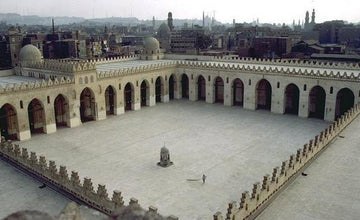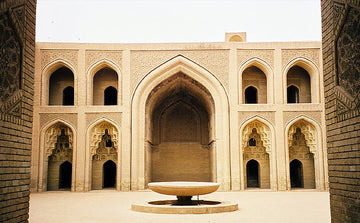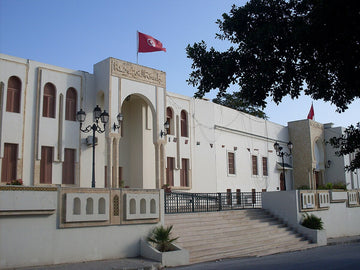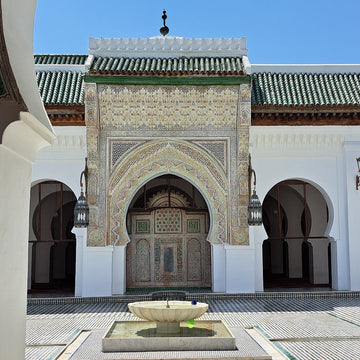The Cedar Tree
The cedar tree holds profound significance for Lebanon, symbolizing resilience, longevity, and strength. Historically, cedar forests once covered vast areas of Lebanon, earning the country the nickname "Land of the Cedars." These trees were highly prized in ancient times for their durable wood, used in construction and shipbuilding, and were even mentioned in the Bible for their association with royalty and prosperity. In Lebanese culture, the cedar is a national emblem, prominently featured on the country's flag. The cedar tree on the flag is surrounded by a white field, symbolizing peace and purity. This design was inspired by the story of the Lebanese flag's creation, where the white snow on Mount Lebanon contrasted with the green of the cedar trees, inspiring the flag's colors.
In literature, Lebanese poets and writers often use the cedar tree as a symbol of national identity and pride, depicting it as a symbol of steadfastness in the face of adversity and of the deep-rooted heritage of the Lebanese people. Kahlil Gibran, a Lebanese-American poet and writer, mentioned the cedar tree in his poem "The Garden of the Prophet," which is part of his larger work, "The Prophet." Gibran uses the cedar tree as a reflection of the enduring qualities of nature and the human spirit. It represents permanence, standing tall and strong amidst the changing seasons and circumstances of life.
Though cedar trees are most closely associated with Lebanon, they are native to the mountains of the Mediterranean region, including western Syria and southern Turkey. Cedar trees are also found in the mountainous regions of Morocco and Algeria in North Africa. In fact, the oldest cedar tree in the world is located in the highlands of northern Morocco, in the Rif Mountains. This cedar tree, known as the "Cedrus atlantica," or Atlas cedar, is estimated to be over 4,000 years old, making it one of the oldest living trees on Earth. The Atlas cedar is highly revered in Morocco and is protected as a national treasure.
Gibran Kahlil Gibran | جبران خليل جبران
Kahlil Gibran, born in 1883, in the town of Bsharri in what is now modern-day Lebanon, was a renowned poet, philosopher, and artist. Raised in a Maronite Christian family, he immigrated with his mother and siblings to Boston. Despite a limited formal education, Gibran's talent as an artist was evident from a young age. He studied art in Paris before returning to the United States, where he began writing in English. His early works were largely in Arabic and were influenced by his Lebanese heritage. His love for Lebanon is evident in many of his writings, such as in his work “You have your Lebanon and I have my Lebanon,” an excerpt of which is translated below.
It was his English writings, however, that brought him international acclaim. Gibran's most famous work, "The Prophet," is a collection of poetic essays that blend elements of mysticism, philosophy, and religion. It explores themes such as love, marriage, work, and freedom, and has been translated into over 100 languages. Gibran's art and writings often reflected his belief in the importance of spiritual and humanitarian values, earning him a reputation as a spiritual guide and a voice of the human soul whose legacy of wisdom and inspiration continues to resonate with readers around the world.
from You Have Your Lebanon and I Have My Lebanon | لكم لبنانكم ولي لبناني
لكم لبنانكم ومعضلاته، ولي لبناني وجماله.
You have your Lebanon with her problems, and I have my Lebanon with her beauty.
لكم لبنانكم بكل ما فيه من الأغراض والمنازع، ولي لبناني بما فيه من الأحلام والأماني.
You have your Lebanon with all her prejudices and struggles, and I have my Lebanon with all her dreams and securities.
لكم لبنانكم فاقنعوا به، ولي لبناني وأنا لا أقنع بغير المجرّد المطلق.
You have your Lebanon, so be content with it, and I have my Lebanon and I am not satisfied with anything other than the absolute abstract.
لبنانكم عقدة سياسية تحاول حلها الأيام، أما لبناني فتلول تتعالى بهيبة وجلال نحو ازرقاق السماء.
Your Lebanon is a political knot that time attempts to untie, but my Lebanon is a hill that is elevated in its glory and majesty towards the blueness of the sky.
لبنانكم مشكلة دولية تتقاذفها الليالي، أما لبناني فأودية هادئة سحرية تتموج في جنباتها رنات الأجراس وأغاني السواقي.
Your Lebanon is an international problem that is tossed around in the nights, while my Lebanon has quiet, magical valleys where the ringing of bells and the songs of waterwheels ripple along its corners.
لبنانكم صراع بين رجل جاء من المغرب ورجل جاء من الجنوب، أما لبناني فصلاة مجنّحة ترفرف صباحًا عندما يقود الرعاة قطعانهم إلى المروج، وتتصاعد مساءً عندما يعود الفلاحون من الحقول والكروم.
Your Lebanon is a struggle between a man who came from Morocco and a man who came from the south. As for my Lebanon, it is a winged prayer that flutters in the morning when the shepherds lead their flocks to the meadows, and rises in the evening when the peasants return from the fields and vineyards.
لبنانكم حكومة ذات رؤوس لا عداد لها، أما لبناني فجبل رهيب وديع جالس بين البحر والسهول جلوس شاعر بين الأبدية والأبدية.
Your Lebanon is a government with countless heads, while my Lebanon is an awe-inspiring and gentle mountain that sits between the sea and the plains, the seat of a poet between eternity and eternity.






